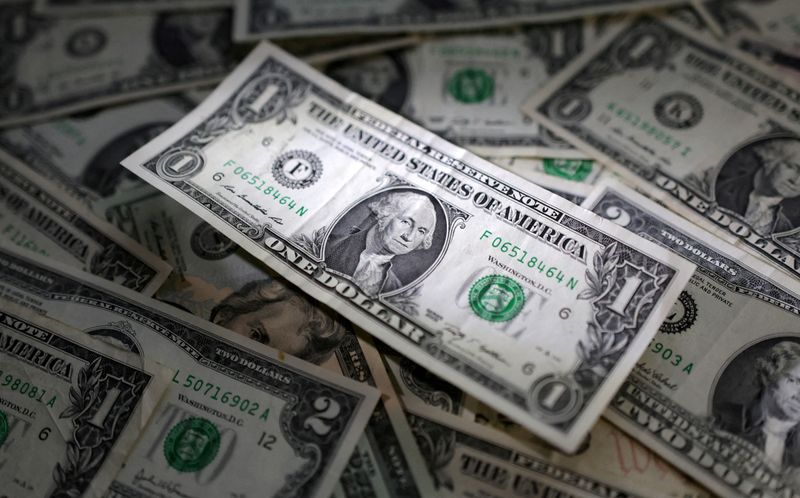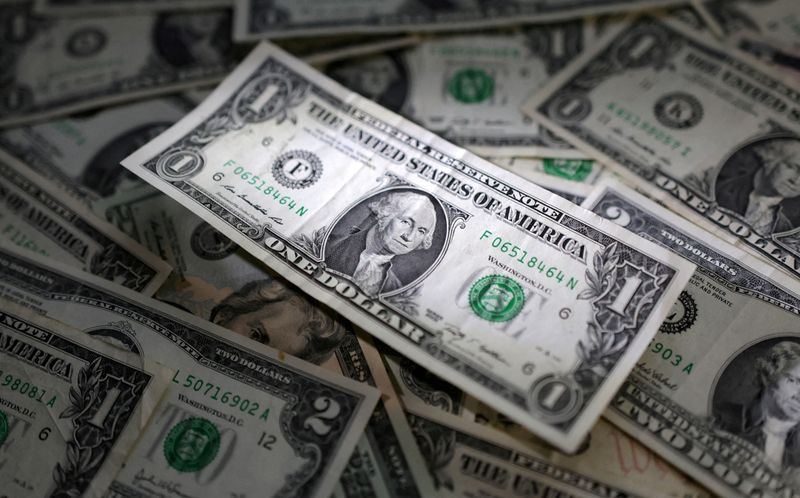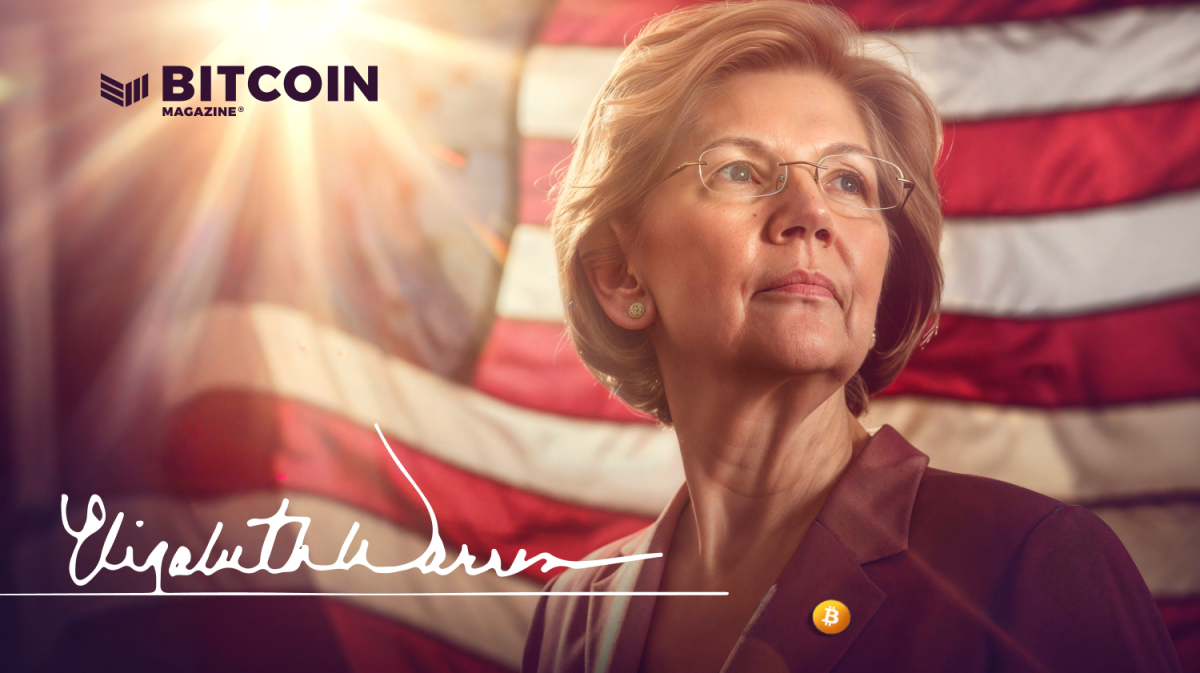Month: February 2024
Dollar steady after producer prices push back on Fed rate cut outlook
Post Content
Coinbase’s GiveCrypto Donates $3.6 Million To Brink To Fund Bitcoin Developers
GiveCrypto, an initiative founded by Coinbase CEO Brian Armstrong “to make direct donations to people in need”, has made a significant donation of $3.6 million to Brink, a non-profit organization dedicated to funding Bitcoin developers.
Brink is excited to announce a $3.6m donation to our #Bitcoin development funding efforts from GiveCrypto!
Thank you to @brian_armstrong and the @coinbase team as well as @johnhering and @FEhrsam for your support in making this happen!
— Brink (@bitcoinbrink) February 16, 2024
Brink, founded by renowned Bitcoin developers John Newbery and Mike Schmidt, aims to provide financial support and mentorship to promising developers working on open-source Bitcoin development. Interested Bitcoin developers can apply for fellowships and grants from Brink, and see a current list of grantees and alumni on their website here.
“This donation to Bitcoin Core Developers through Coinbase’s GiveCrypto program is one of the largest single Bitcoin developer donations in history,” stated Brink Co-founder and Executive Director Mike Schmidt. “Brink is honored to be the recipient of this donation and for the conviction this shows in the important work that Brink engineers are doing day in and day out on the open source software at the core of the Bitcoin ecosystem.”
The substantial donation from GiveCrypto will enable Brink to expand its efforts in funding Bitcoin developers and supporting essential projects within the Bitcoin ecosphere. By providing resources and funding to driven developers, Brink aims to accelerate the advancement of the Bitcoin protocol and drive innovation.
“This builds on our previous partnership with Coinbase’s Crypto Community Fund and 100% of these funds will go toward the developers with no strings attached to the contribution,” Schmidt continued. “I’d like to personally thank Brian Armstrong and John Hering, as well as the team at Coinbase for making this fantastic developer funding donation happen.”
This past December, Coinbase announced that they were winding down GiveCrypto, despite its’ positive impact, because the company wanted to “take a new direction.” Therefore, Coinbase delcared that they would donate the remaining funds of GiveCrypto to Brink and GiveDirectly.
“Brink is working to strengthen the Bitcoin software and protocol and GiveDirectly is better equipped to ensure crypto donations reach those who need them most and will experience sustained benefits,” Coinbase stated then.
Instant Settlement Series: The Gambling Industry
Somebody, somewhere, at some point decided they would destroy the competition by creating a barrier to entry. They made the barrier high so they could feel safe. It is logical to put a fence around your property, and perfectly fine to do so. The problem is when you put a regulatory fence over something that means you are not allowing anyone else to have a property like this. Just to make the distinction clearer a fence around your house is creating a cost for other people to get in the yard. A license to be able to have a fence is creating a cost for anyone to protect their yard. The harder to attain and costlier the license is the more people can’t afford it. The more people who can’t afford it the bigger the divide between rich and poor. You can’t have a fence because you can’t have a license leaving your yard unprotected. The poor people are left unprotected and they get robbed easily, the rich are hard to get so they keep what they have. The more licenses/regulatory compliance someone has to comply with the more the costs for them are increased and the cycle of dividing is entrenched.
When constructing something physical, regulatory oversight is sensible to ensure structural integrity, particularly when people no longer build things for themselves. However, when it comes to more abstract concepts like licenses and credentials, possessing them doesn’t guarantee success, and lacking them doesn’t preclude doing excellent work. The whole point of the series is that the work should speak for itself and the people who did it should build their reputation based on their work history not on theory.
Let’s dive into a sector full of licenses for abstract things that keep people out and cornered the market. The betting industry.
The incentive structure in this scenario is problematic. Individuals with substantial financial resources that were gained illegally may seek friendly relationships with those responsible for issuing licenses. Obtaining a betting license now can serve as a means to launder money acquired unlawfully. Beyond mere laundering, they have a direct incentive to continue their illegal activities and a way to legitimize the funds. So they steal from the people who work and it gets even worse. Their scaling solution is to open the money laundering to other illegal actors.
A few parts of the economy are primed for these types of activities: the lottery, casinos, and sports betting.
Let’s start with the current lottery system and the “potential” exploits. Well, one person does something illegal and has stolen 1,000,000$. Now he has a problem with how to legitimize the funds so he can spend it on things he wants. He goes to the owner of a lottery and says I will give you 200,000$ if you give me an 800,000$ winning ticket. Now 80% of the funds become legal. The person with the illegal funds buys 200,000$ worth of tickets from which 1 of them is set up to win 800,000$. Now all the funds have become legal. So the lottery company has a 200,000$ income and 800,000$ payout, seemingly paying out the winner with legitimate funds, but in reality, using the criminal’s own money – correction, other people’s stolen money. That is good for hiding taxes and the state is not getting anything, or is it?
The state gets its cut for every winning ticket by taxing all winners. Because of this income, they are incentivized to have more winners. This whole “hypothetical” system then is limited by how much money has to be laundered. More illegal money, more income for each side – the state, the illegal player, the lottery company. While they get the big winning tickets the public is left with the small prizes and they are robbed continuously for the next lottery “prizes”. This tripod system demonstrates how one simple thing can be a continuous erosion of society. The lottery company does nothing to earn their money but they are incentivizing the illegal actors to continue doing illegal things. The State allowing licenses keeps competition out. The illegal actor closes the circle of his business.
The lottery should be something that is played without anyone having an advantage over anyone else. Including the company, there shouldn’t be a barrier for people creating all sorts of lottery games. The same model of behavior incentives is applicable for all the casinos. There is the same principle – some type of algorithm determines whether you win or not. But you can always approach the casino owner and apply the same logic to the casino. A player with illegal funds has to launder a million dollars again. In the first few hands, he wins a million dollars and keeps playing until incurs losses amounting to 200 000$ and then stops. This way the casino loses 800 000$ on its balance sheet but in reality, the illegal funds are distributed to the casino and the illegal actor.
In the sports betting industry, the barrier to entry is often determined by licenses, and companies typically act as custodians of the funds when users place bets. Additionally, these companies are responsible for providing betting odds, a task that incurs substantial costs when done accurately. Assessing various factors such as team performance, player injuries, and changes in management helps determine the odds. However, it’s crucial to note that the odds provided by betting companies are designed to favor the company rather than the individuals placing bets. This inherent bias in odds contributes to the company’s profit margin in the betting business.
Exploring a free and ethical approach to lottery apps and innovative payout structures
The whole lottery system should be verifiable! The point of it is not to have yet another system where the poor are preyed upon. That is why the lottery app should be open-sourced. The bigger reason for the apps to be FOSS – I am reluctant to say how this particular app should be created because, on the one side, there are going to be regulatory people who want you to ask for approval, and on the other side there are betting companies that a percentage of them are involved in criminal activities. If you create an app that makes them obsolete you will find yourself being attacked legally, illegally, and anything in between. That is why the only option that I see for a small guy to not be a target is to create this app as a FOSS (free and open source software). This will create a problem for those entities because there is no target. It will have no barriers for others to create apps competing with the existing incentives. There was a big debate in my head about whether I should publish this article about this particular topic because of the ethically sticky situation. Also, I do not think that people should play with money and bet on stupid things. The main reason that I am doing this is that there should not be an incentive to do illegal activities but there should be a cost for it. Since the current system is incentivizing it, people should create the cost for them by making a free alternative (no licenses, or permissions from anyone) and with no risk for the players (non-custodial). Also, the cases that we will look at below as a payment structure are simply cool and unique that we have yet to experience anywhere. This will push even us at Breez to create and facilitate them if the need is there. Now let’s take a look at the potential solution and what I envision it could look like.
An algorithm can be designed where individuals purchase a virtual ticket, and once 100 participants acquire tickets, the entire pool is distributed among three randomly selected winners. The distribution comprises 50% for the first prize, 30% for the second, and 20% for the third. The concept of a physical ticket is eliminated; instead, participants contribute equal amounts of satoshis to a smart contract, which activates upon reaching the 100th participant. The executed contracts allocate 50% to the first-place winner, 30% to the second, and 20% to the third. No entity holds funds for others, and participants await the completion of the 100 spots to determine the three winners. You can do the lottery for more or fewer people. For different amounts of sats. With a different payout structure.
I envision a lottery game modeled after the hashing race in Bitcoin mining. Participants are required to guess a number between 1 and 1,000,000 by locking in 10 satoshis for each guess. If the guessed number is incorrect, that specific guess is eliminated from the potential answers, and the satoshis from all guesses contribute to the Jackpot for the correct number. The participant who correctly guesses the number receives the accumulated satoshis. The payout amount depends on the position of the correct guess, for example, if it occurs on the 10th try, the prize is 100 sats, and if on the 100,000th try, the prize is a million sats. Upon completion of the payout, the game resets, and participants can engage in the next round.
Revolutionizing one-on-one Betting with trustless payouts
When I am with a friend, we can choose to place a bet on something–our favorite sports team, who can spit the furthest, or whether the sun will rise tomorrow. We are perfectly able to do so with cash, and we do not need a license from anyone to place those bets or determine the odds for us. There is only one problem that we have to handle when the results are in – the person who is losing the bet has to pay the winner. Because of this risk, you need a trusted third party that is unbiased to execute the payment when the results are known. Now you need a mitigation for the third-party risk–that they won’t run away with the money. So you make a fourth party involved to determine who can have a license to be a trusted third party, and we are back to the current fiat operational model.
With instant settlement and smart contracts, we destroy all those problems.
You do not need a license for trust because no one is holding money for anyone else.You do not need a trusted third party because you have a smart contract responsible for the execution of the payment when the results are knownYou do not need a third party to determine the odds because they are decided by the people and put in the smart contractYou do not need to trust the person to pay when you win because he signed the execution of the payment when both of you placed the bet.
This structure for one-on-one betting is already implemented with a few games in the lightning space. One is from our friends at THNDR games and another is the Chain Duel. I like the infrastructure for the payment of the THNDR games because I am a sucker for non-custodial lightning. Custody for a second, a minute or a year is still custody.
What would a sports betting app look like that has a non-custodial instant settlement? There are a few easy settings to establish. First, there needs to be a deadline for placing bets before the sports event starts. Second, a timeframe must be set for the payout. In one-on-one betting, the payout structure is straightforward. Each side can wager any amount against the other, and if there is a disparity in the amounts, the odds are not 1:1. When the result is determined, the winning party has their funds unlocked without being sent, while the losing party has their contract executed, transferring the payment to the winner. THNDR is already implementing a similar concept called “clinch” which we are glad we had some input on, but I want to take it a few steps further.
Exploring novel concepts in wagering -> community-to-community
What if there’s a group of people on one side of the bet and another group on the opposing side? What does the payout look like, and how are the odds determined? Let’s delve into a straightforward graph to better illustrate this example.
The individuals on the left consist of only two people, but they wager a larger amount. On the right, there are four people, but their bets are smaller. If the left side wins, the two individuals will share the $1,000 bet placed by the opposing group. Since they bet equal amounts, each person will receive $500, reflecting a 50% stake for each. Conversely, if the right side wins, the stakes differ. Individuals 1 and 2 have a 25% stake, person 3 has a 40% stake, and person 4 has a 10% stake. Consequently, their respective payouts would be $500, $500, $800, and $200. That was a surprise even for me – there is a proof of stake system that I would be for. I realized that the staking is just not used in the proper context and that is why I have a problem with it. Proof of stake is deployed for bets and bets only. There is no such thing called staking your energy – that is called working. Now this system is not the shitcoin model – stake something and I guarantee you something more. Staking something means that going in you know (or you should know) that your stake could be lost. If someone is asking you to stake money and promising you more money you should ask yourself who is the loser that will pay the winner. If I am the winner, who is the loser? If we are all winners that means we all lost to inflation and the winner is the inflator. Stake = Bet.
The true stake system introduces a novel dimension to betting. While the primary goal is to win, participants might consider adding more funds to their community bet to avoid dilution. For instance, if I initially bet $10 alone, I would have a 100% payout potential. However, if someone else places a $10,000 bet on my side, my potential payout percentage drops to less than 0.1%. In such a scenario, I face two choices: increase my bet on my community’s side for a better payout or place a bet on the opposing side, capitalizing on the changed odds for a potentially significant payout if I am wrong. This concept sheds light on the genuine meaning of hedging. You are hedging things that you BET on! Whether you call it an investment strategy or not you should now recognize that everything in the fiat system is using these terms but hiding the fact that it is gambling. For example, if you are a true investor you should do everything you can to make your investment work and realize that goal. Betting against yourself = hedge.
The community-to-community betting brings about more significant implications than current betting models. In this setup, the victorious community directly benefits, and if the bet is placed on a sports event, the winning team supports the winning community. The funds from the losing team’s community are directly paid to the winning community and not to a betting company. This eliminates the intermediary role of any betting company. The people also are forced to do their research and assess which is a good bet and which is not – not that the majority do it. If they did it was going to be clear to all of us by now that all sh*tcoins are the fiat scam on a blockchain.
When there are three or more possible outcomes for a bet, multiple people or communities can bet on those outcomes, and all losing communities pay the winning community. In this scenario, individual participants receive payouts based on their respective stakes. For instance, in a bet involving predicting an exact score where no one bets on the correct score, there is no winner, and consequently, no actual losers. In such cases, participants simply have their sats unlocked without any winnings or losses.
We invest our energy in goals – make sure it is your goals and not someone else’s. With money, we do 3 things only – earning, spending, or gambling!
People want to pay you money so you achieve their goals and stake your money so you can lose it to them. Be very aware of where you invest your energy and how you are using your bitcoin. I would like to repeat my statement from above one more time. The forces that are involved with these gambling companies are very powerful and I do not want to inspire someone and put a target on their back. I am doing this because of the utility of the payments and because this can be an open-sourced project that just competes with them. Satoshi set a standard for how to solve a monopoly – with FOSS. This will completely reshape the coordination between humans again with instant settlement payment. I do not like that I am promoting betting behavior because it is addictive and dangerous but I hope this puts a light on why all fiat behavior is gambling. The only proof of stake that matters is what is your stake in Bitcoin from the 21 million coins. Having a stake there is betting on humanity for the better.
Now be careful with this bet to make that app!
This is a guest post by Ivan Makedonski. Opinions expressed are entirely their own and do not necessarily reflect those of BTC Inc or Bitcoin Magazine.
Asia FX muted amid rate cut uncertainty; dollar set for fifth week of gains
Post Content
US dollar retreats as slew of data keeps rate cut expectations in June intact
Post Content
MicroStrategy’s Bitcoin Holdings Now Worth Over $10 Billion
MicroStrategy’s investment in bitcoin has reached a significant milestone, with the company’s holdings now valued at over $10 billion as BTC rises above $52,000. This achievement underscores MicroStrategy’s steadfast commitment to bitcoin as a long-term store of value and a hedge against inflation.
JUST IN: MicroStrategy’s #Bitcoin holdings are now worth over $10 BILLION 🤯 pic.twitter.com/JhbGYtAmAI
— Bitcoin Magazine (@BitcoinMagazine) February 15, 2024
Since its initial foray into Bitcoin in August 2020, MicroStrategy has consistently increased its holdings, viewing bitcoin as a key component of its treasury strategy. The company’s executive chairman, Michael Saylor, has been a very big vocal advocate for Bitcoin, citing its potential to preserve purchasing power over time.
The company’s continued accumulation of Bitcoin highlights its confidence in Bitcoin’s ability to deliver superior returns compared to traditional investment assets. Last week, the business intelligence company considered itself “the world’s first #Bitcoin development company.”
NEW: MicroStrategy now considers itself “the world’s first #Bitcoin development company” 👀 pic.twitter.com/frEC4q9zHy
— Bitcoin Magazine (@BitcoinMagazine) February 7, 2024
As Bitcoin continues to gain mainstream acceptance and recognition as a legitimate asset class, MicroStrategy’s sizable investment positions the company as a prominent player in the industry. With Bitcoin’s price coming close to previous all-time highs of $69,000, MicroStrategy’s decision to allocate a significant portion of its treasury reserves to BTC has paid off handsomely.
Fiat Is Artificial Money And Bitcoin Is Natural Money
I attended the Bitcoin Freedom Festival in Uvita, Costa Rica from January 18th through 20th. It was a unique event that was unlike any bitcoin gathering I’ve ever attended. There were over 30 speakers during the festival so I won’t try to cover each but there was one session that stood out and it involved a panel of indigenous women all who spoke through a translator. This panel said two things on the final morning which captured the essence of the festival. First, she made it clear they were guided by the Great Spirit to be there on that stage. [“I came because the Great Spirit opened the path” which included a car to the venue.] The wind speaks to us, the water speaks to us, the trees speak to us. Grandfather says, “always speak to that which gives us energy.” Some of these ideas might seem strange to the western mind, fully addicted to their screens and disconnected life.
BITCOIN IS NATURAL MONEY!
And then one of the members of the panel described bitcoin in a way that I’d never heard before. She called it the natural coin or “natural money.” It was one of those moments when the blinding flash of the obvious hits you like a thunderbolt. “Bitcoin is natural money.” Hold it, did she say bitcoin is natural money? Holy crap “bitcoin IS natural money!!” The completely ignorant say bitcoin is backed by nothing but that is so laughably wrong there is no point even engaging with someone who holds that uninformed view. Some bitcoiners like to say bitcoin is “money backed by energy” which many bitcoiners {most notably Eric Yakes author of The 7th Property} vigorously refute. Eric says bitcoin is “secured” by energy which I agree is a better framing.
However, this wise women in the jungle just gave bitcoin the best framing yet it’s: “n a t u r a l m o n e y.” You start with running water or methane gas, or hydrocarbons or wind or solar. ALL THESE ELEMENTS COME FROM NATURE AND ARE THEN CONVERTED TO ELECTRICITY THAT ALLOWS BITCOIN MINERS [ASIC’S] TO BEGIN HASHING WHICH EVENTUALLY RESULTS IN BITCOIN. Without these natural resources there is no bitcoin. Statement of fact. Start with something natural and end with bitcoin. The idea that every country in the world has natural resources that were previously unable to be converted to natural money is not lost on people in Africa or Costa Rica. [Note: Anyone reading this who loves this idea of natural money AND wants to author a children’s book on the topic please reach out to me.]
Fiat Is The Antithesis Of Natural Money
Compare what is needed to produce “natural money” to every fiat currency in the world or any of the top alt coins. Trillions of US dollars can be created out of thin air in seconds as long as you’re the central banker or someone holding an insider position [ONE OF THE PRIVILEGED FEW] who gets to produce money from nothing and certainly NOT FROM NATURE. Fiat is the antithesis of natural money!! “Stick that in your pipe and smoke it Senator Warren!” Fiat is artificial. Bitcoin is natural.
Natural Money NOT Bitcoin
Bitcoin is the term for the zealots, the ideologues and the movement. There is nothing wrong with the term bitcoin but consider the adversarial energy that has been built against it? Our adversaries have built some bitter narratives against it. Are they bullshit? You bet!!! Does most of the world know that? NO!!!
Problem: Bitcoin is used as a derisive term by bitcoin’s biggest enemies, haters and detractors. I’ve personally watched young and old visibly blanche at my mention of the word bitcoin.
Solution: Natural money is so much more approachable for the uninitiated. Imagine if we asked Charlie Munger, Warren Buffett or Peter Schiff this question: “What are your thoughts about natural money?” Their responses will make them sound clownish and ignorant.
Natural money quietly, peacefully and softly creates curiosity around the idea there is such a thing in the world as natural money. There are all kinds of implied qualities about that term which neutralizes the attack surface on bitcoin. It also reduces the attack surface by bitcoin’s opponents because it’s much harder to attack “natural money.” Natural money is of the people, for the people and by the people. You can be against “natural money” of course but it almost seems unnatural to do so. It eviscerates some typical attacks and darts thrown at bitcoin.
It’s the first natural money native to the internet. It doesn’t require much explanation beyond saying it’s the only form of money fueled or sourced by natural resources. Who’d want to oppose “natural money”? [As an experiment, go back and read your favorite or next article about bitcoin but substitute the term “natural money” each time the word bitcoin appears. How does it land on you?]
CALL TO ACTION
As we gathered round the bonfire on the beach that final night on Playa Hermosa as the festival came to a close I shared this indigenous woman’s insight with other festival goers and it resonated. So as a final thought, I invite you to consider executing a “soft fork” in your use of language from this point forward and share her wisdom far and wide. In my view, she captured the gestalt of bitcoin by calling it “natural money.”
From now on, when you get the chance I’d suggest you use the phrase natural money 2x more often when describing bitcoin. Why? There is a huge segment of the population that is more likely to be curious about natural money. Psychologically and subconsciously the world has been HUNGERING for natural money since Nixon closed the gold window in 1971. Bitcoin can sound too much like a cult or religious zealots to those who fail to appreciate it’s breakthrough impact on humanity. There have been dozens of negative narratives thrown at bitcoin since inception. For me it seems much more accurate and satisfying to refer to bitcoin as natural money. One of the festival attendees even created a Twitter handle #naturalmoney. As a gesture of respect for this wise lady let us know you agree with her.
This is a guest post by Mark Maraia. Opinions expressed are entirely their own and do not necessarily reflect those of BTC Inc or Bitcoin Magazine.
Elizabeth Warren Pivots on Bitcoin, Honors Nakamoto With Flag Over Capitol
In an unexpected turn of events, Elizabeth Warren, the long-time adversary of Bitcoin on Capitol Hill, has seen the orange-tinted light and quite literally raised a flag to praise the work of Bitcoin’s anonymous creator, Satoshi Nakamoto, celebrating 15 years since the network launched.
In participation of the Capitol Flag Program, Senator Warren’s office submitted a request to commemorate Nakamoto’s accomplishment of creating the first “truly inclusive financial system,” with the colors of the United States being flown above the Capitol on December 18, 2023 – a date known to Bitcoiners as HODL Day.
While the sudden embrace of Bitcoin by the Massachusetts Senator may seem a surprise, her career-long rhetoric about fighting for the financially under-served has finally taken shape within this tangible statement. As if speaking to her campaign promises to champion the working class negatively affected by corruption within both the government and the banking sector, the certificate produced by the Architect of the Capitol in recognition of the flag notes the “new economic freedoms to populations previously ignored by both private and public institutions” brought forward by Nakamoto’s Bitcoin.
The Senator’s office filing for the flag flying itself was noticed by friends of Bitcoin Magazine, PubKey, who are holding a public event in New York City this evening, February 15, at 6:00 PM EST, to unveil not only the story of the flag, but the flag itself, complete with a dramatized reading of the infamous December 18, 2013 post on BitcoinTalk that immortalized “HODL” within the Bitcoin lexicon from actor, comedian and Bitcoiner T.J. Miller. Prior to the event itself, an X (formerly Twitter) Spaces hosted by Bitcoin Magazine and PubKey at 4:30 PM EST will further tell the story of how Satoshi’s Flag and Warren’s endorsement came to be. Much like during the mid-1770s, freedom-focused bars such as PubKey play an important role in socializing the ideas and stories that make up a revolution.
Thomas Pacchia, Co-Founder of PubKey, made note of the Senator’s pivot when speaking with Bitcoin Magazine. “This is a historic moment for how politicians in Washington view the promise and inclusivity of the Bitcoin protocol. What politicians do is much more important than what they say.” Her website describes her as “a leading voice for consumer protection, financial reform, and social justice,” and her recent action of promoting Satoshi’s work seems to be in total alignment with her stated political mission.
Only one week before Warren ordered the flag flown, the Senator introduced legislation to give the Treasury more tools to restrict the criminal usage of Bitcoin, making bold comments that they “need new laws to crack down on crypto’s use in enabling terrorist groups, rogue nations, drug lords, ransomware gangs, and fraudsters to launder billions in stolen funds, evade sanctions, fund illegal weapons programs, and profit from devastating cyberattacks.” She even went so far as to make note of creating “an anti-crypto army” in March of last year, in her bid for reelection. Warren had co-authored a letter to Fidelity CEO Abigail Johnson in May 2022 raising concerns about putting Bitcoin within their 401(k)s, stating that, “Investing in cryptocurrencies is a risky and speculative gamble, and we are concerned that Fidelity would take these risks with millions of Americans’ retirement savings.”
Now that U.S. regulatory agencies such as the SEC have allowed the approval of 11 spot Bitcoin ETFs, including Fidelity’s FBTC, Warren has changed her tone, recognizing the immense economic freedom brought about by such a novel technology, and now joins a growing group of elected officials throwing their name behind Nakamoto’s protocol.
Bitcoin Magazine and PubKey encourage Bitcoiners to take polite note of this change of heart by reaching out to Warren’s office directly, as well as tagging her X (formerly Twitter) handle, and thanking her for championing Satoshi Nakamoto and recognizing him as the hero he is.
First Ever Freedom Festival Held In Bitcoin Jungle Shows Bottom Up Adoption of Lightning
Over two hundred bitcoiners descended on Uvita from January 18th – 20th which is a popular seaside spot in Costa Rica. The Bitcoin Freedom Festival was billed as a spiritual gathering for those who celebrate freedom money, nature and sovereignty. What many bitcoiners are still discovering about this beautiful place along the southern Pacific coast is that Uvita and Dominical, {the town 18 km north} are the region known as Bitcoin Jungle.
One Of A Kind Bitcoin Festival
The Bitcoin Freedom Festival was held at The Awake Center in Uvita. When you arrive at the appropriately named Awake Center for the festival you quickly realize this is NOT going to be like any other conference you’ve experienced. [Note: It reminded me of attending my first Slow Money Gathering in Boulder, Colorado in 2013 where they closed the conference using a Quaker style practice of silent meditation. Quakers gather in the silence and wait expectantly to come into the presence of the Divine and to be guided by the still, small voice by which God speaks to us from within. During the silence, anyone may feel moved to offer a simple spoken message (vocal ministry) that is inspired by this holy encounter.]
There were three outside covered pavilions where the speakers were featured with the most striking one being a round structure [the Shala] which on Sundays serves as a place for ecstatic dance. The Shala is more reminiscent of a buddhist temple than a conference site. The heart of the grounds was the cafeteria [The Cora] which nourished its visitors and where a small sign at the entrance in very small lettering that only those fully present would notice was the sign “Be, Don’t Become.” The head chef was gracious and very proud of her role in feeding people all organic and vegan meals. For those who consider high quality food to be medicine she seemed to take delight when I said “You and your team are the festival’s primary health care workers on premises.” If this were anything besides a gathering of bitcoiners that would have been the only food offered BUT alas there was also generous portions of beef being served by an outside vendor in another part of the property for the carnivores. This festival also had a place on the AWAKE grounds but NOT INSIDE FESTIVAL BOUNDARIES where merchants and vendors who accept bitcoin could have a booth and sell to festival attendees and the public at large.
To give you some idea how unique this event was, consider this: When was the last time you attended a Bitcoin gathering where shoes came off in the meeting places such as the Cora and the Shala AND where many of the event organizers were barefoot all three days? Oh, with a river bordering the property? If your goal is to get in touch with and be part of nature this was easy to do. If your goal was an air conditioned corporate event this was decidedly NOT for you.
An Incomparable Country Meets Incomparable Money
It’s helpful to understand some of Costa Rica’s cultural history as well in understanding the event. For example, Costa Rica was way ahead of its time in 2002 by embedding “pax natura” into their constitution. Pax natura means peace with nature. I’m not aware of another country with greater care for and love of nature, a culture that avoids waste, a culture that produces most of what it needs locally [including power] and has no standing army. Costa Rica has always remained a neutral country and never engaged in fighting between nations or tribes in Central America which makes it rare. And of course the greeting “Pura Vida” is the perfect expression that you will hear often when you visit. The phrase itself has many shades of meaning.
What prompted the wonderful people behind Bitcoin Jungle to sponsor this festival? They wanted to demonstrate to the local community [Uvita and Dominical] that many bitcoiners would be drawn to the area. By the last day of the festival one of the organizers kept hearing feedback from the local shopkeepers saying “you were right.” We met with one of the merchants at the local Bahia Farmers Market the Wednesday following the conference and she said her business was up 80% because of the conference. She had done so well since signing up for bitcoin 2 years ago that the merchant in the next booth started asking her how she can accept bitcoin. [Wallet tips: In addition to being able to use the Bitcoin Jungle App, the Phoenix wallet worked as did Wallet of Satoshi and Strike. The Muun wallet will work but in the high fee environment you might only use it for purchases of $100 or more. I used my Muun wallet to pay for our lodging and there were a surprising number of places that accepted bitcoin. Nearly every place we went during a two week trip accepted bitcoin using the Bitcoin Jungle App. The beauty of the Bitcoin Jungle App is it lets the user hold bitcoin and use the Costa Rican payment system Sinpe which is widely used in Costa Rica.
Connect With Self So You Can Connect With Others
It’s difficult to capture in words the serenity of the venue. Even so, the true heart of the venue is the river which defines the southern boundary of the property. Since the conference was held during the dry season the river had lots of exposed rock that for those who are ambitious can rock hop to the ocean several kilometers away. Many conversations were held and friendships formed by festival goers cooling off in the river because all venues were outdoors and covered but not air conditioned. Since January is the dry season in Costa Rica it is hot and the river is the place to cool off and connect. The Awake owner indicated he has plans for a cold plunge but it had not been set up in time for the festival.
If you live or work in a place with winter or just drab cloudy cold weather this entire region will warm your body and soul from the inside out. You will literally feel the stress melt away if you allow yourself to slow down. In this age of too many screens, too many distractions, too much insanity this place and the festival is just what the doctor ordered. There were meditation sessions and breath work and many mindfulness programs that focus on connection with self which, in this author’s opinion, is the most important connection. FULL STOP. If we don’t enjoy a strong connection to Self, there is little chance we will enjoy our connection to others.
Many bitcoiners have made a pilgrimage to El Salvador since bitcoin was made legal tender there in September 2021. Give yourself a huge gift and check out its Central American neighbor. You will find Bitcoin Jungle to be a deeply spiritual region that resides in a country and a people who are intimately in touch with nature. Due to the hard work of the Bitcoin Jungle Team, many area merchants have embraced the bottom up adoption of Lightning. It seems only fitting that such a deeply spiritual place would also adopt a deeply spiritual form of money. Pura Vida.
This is a guest post by Mark Maraia. Opinions expressed are entirely their own and do not necessarily reflect those of BTC Inc or Bitcoin Magazine.
Asia FX stems losses as dollar consolidates; yen digests Q4 recession
Post Content








